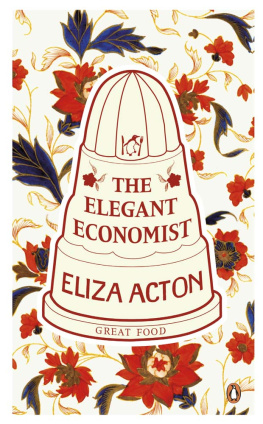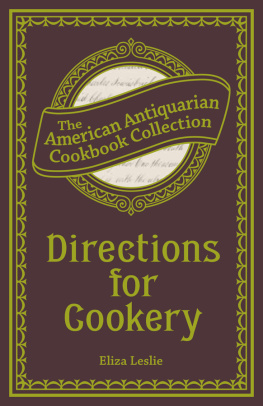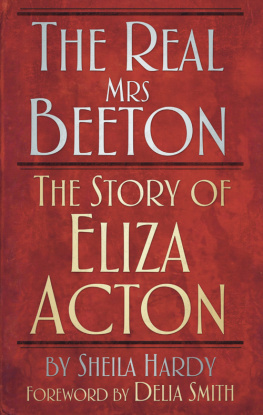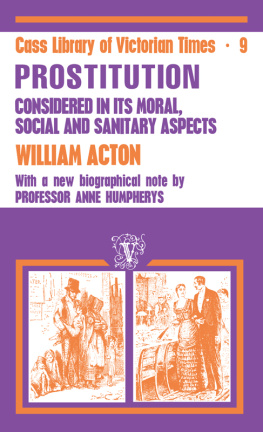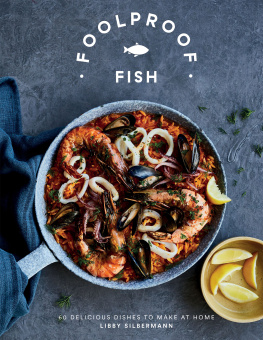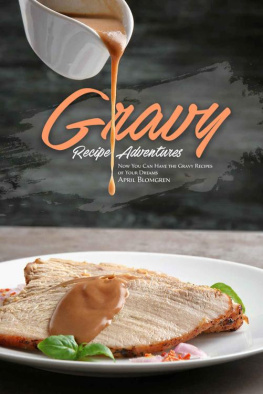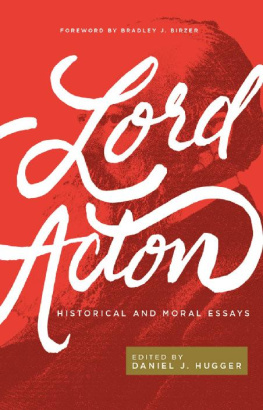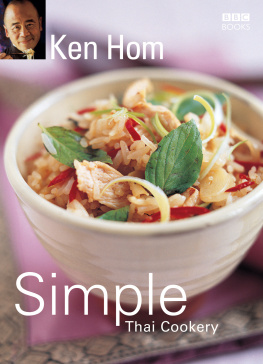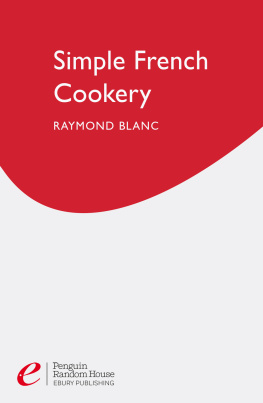The Elegant Economist
ELIZA ACTON
PENGUIN BOOKS
PENGUIN BOOKS
Published by the Penguin Group
Penguin Books Ltd, 80 Strand, London WC2R 0RL, England
Penguin Group (USA) Inc., 375 Hudson Street, New York, New York 10014, USA
Penguin Group (Canada), 90 Eglinton Avenue East, Suite 700, Toronto, Ontario, Canada M4P 2Y3 (a division of Pearson Penguin Canada Inc.)
Penguin Ireland, 25 St Stephens Green, Dublin 2, Ireland
(a division of Penguin Books Ltd)
Penguin Group (Australia), 250 Camberwell Road, Camberwell, Victoria 3124, Australia
(a division of Pearson Australia Group Pty Ltd)
Penguin Books India Pvt Ltd, 11 Community Centre, Panchsheel Park, New Delhi 110 017, India
Penguin Group (NZ), 67 Apollo Drive, Rosedale, Auckland 0632, New Zealand
(a division of Pearson New Zealand Ltd)
Penguin Books (South Africa) (Pty) Ltd, 24 Sturdee Avenue, Rosebank, Johannesburg 2196, South Africa
Penguin Books Ltd, Registered Offices: 80 Strand, London WC2R 0RL, England
www.penguin.com
Modern Cookery first published 1845
This extract published in Penguin Books 2011
All rights reserved
Cover design based on a pattern from a plate by Josiah Wedgwood & Sons, c. 184050. Lead-glazed earthenware, transfer-printed, painted and gilded. (Photograph copyright Victoria & Albert Museum.) Picture research by Samantha Johnson. Lettering by Stephen Raw
Except in the United States of America, this book is sold subject to the condition that it shall not, by way of trade or otherwise, be lent, re-sold, hired out, or otherwise circulated without the publishers prior consent in any form of binding or cover other than that in which it is published and without a similar condition including this condition being imposed on the subsequent purchaser
ISBN: 978-0-14-196698-4
PENGUIN BOOKS GREAT FOOD
The Elegant Economist
ELIZA ACTON (17991860) was born in Sussex and, apart from some time spent in France, lived for much of her life at Bordyke House in Tonbridge, where she kept house for her mother. Modern Cookery, first published in 1845, was her first cookery book and quickly gained wide acclaim for its practical, step-by-step approach. Delia Smith has called Acton the best writer of recipes in the English language.
Poetic Receipts for Soups, Salads and Dressings
INGREDIENTS WHICH MAY ALL BE USED FOR MAKING SOUP OF VARIOUS KINDS
Beef Mutton Veal Hams Salted Pork Fat Bacon Pigs Ears and Feet Venison Black and Moor Game Partridges Pheasants Wild Pigeons Hares Rabbits Turkeys Fowls Tame Pigeons Sturgeon Conger Eel, with all sorts of Fishusually eaten All Shell-Fish Every kind of Vegetable and Herb fit for food Butter Milk Eggs Sago Arrowroot Indian Corn Hominy Soujee Tapioca Pearl Barley Oatmeal Polenta Macaroni Vermicelli Semoulina, and otherItalian Pastes.
The art of preparing good, wholesome, palatable soups, without great expense, which is so well understood in France, and in other countries where they form part of the daily food of all classes of thepeople, has hitherto been very much neglected in England; yet it really presents no difficulties which a little practice,and the most common degree of care, will not readily overcome; and we strongly recommend increased attention to it, not onlyon account of the loss and inconvenience which ignorance of it occasions in many households, but because a better knowledgeof it will lead naturally to improvement in other branches of cookery connected with it in which our want of skill is now equally apparent.
We have endeavoured to show by the list at the beginning of this chapter the immense number of different articles of whichsoup may be in turn compounded. It is almost superfluous to add, that it may be rendered at pleasure exceedingly rich, orsimple in the extreme; composed, in fact, of all that is most choice in diet, or of little beyond herbs and vegetables.
From the varied produce of a well-stored kitchen garden, it may be made excellent at a very trifling cost; and where fishis fresh and abundant it may be cheaply supplied nearly equal in quality to that for which a full proportion of meat is commonlyused.
It is best suited to the colder seasons of the year when thickened well with rice, semoulina, pearl barley, or other ingredientsof the same nature; and adapted to the summer months when lighter and more refreshing. Families who have resided much abroad,and those accustomed to continental modes of service, prefer it usually in any form to the more solid and heavy dishes which still often supersede it altogether at our tables (except at those of the more affluentclasses of society, where it appears, as a matter of course, in the daily bills of fare), and which are so oppressive, not only to foreigners, but to all persons generally to whom circumstances have rendered them unaccustomed diet; and manya housekeeper who is compelled by a narrow income to adopt a system of rigid domestic economy, would find it assists greatlyin furnishing comfortable meals in a very frugal manner, if the proper modes of making it were fully comprehended as they ought to be.
TO FRY BREAD TO SERVE WITH SOUP
Cut some slices a quarter of an inch thick from a stale loaf; pare off the crust and divide the bread into dice, or cut itwith a small paste-cutter into any other form. For half a pound of bread put two ounces of the best butter into a frying-pan,and when it is quite melted, add the bread; keep it turned over a gentle fire until it is equally coloured to a very palebrown, then drain it from the butter, and dry it on a soft cloth, or on a sheet of paper placed before a clear fire upon adish, or upon a sieve reversed.
SIPPETS LA REINE
Having cut the bread as for common sippets [see preceding receipt], spread it on a dish, and pour over it a few spoonsful of thin cream, or of good milk: let it soak for an hour, then fryit in fresh butter of a delicate brown, drain and serve the sippets very hot.
EXTRACT OF BEEF, OR, VERY STRONG PLAIN BEEF GRAVY SOUP
(Baron Liebigs Receipt)
Take a pound of good, juicy beef (rumpsteak is best for the purpose), from which all the skin and fat that can possibly beseparated from it, has been cut away. Chop it up small like sausage-meat; then mix it thoroughly with an exact pint of cold water, and place it on the side of the stove to heat very slowly indeed; and give it an occasional stir. It may stand two or three hours before it is allowed to simmer, and will then require atthe utmost but fifteen minutes gentle boiling. Professor Liebig directs even less time than this, but the soup then occasionallyretains a raw flavour which is distasteful. Salt should be added when the boiling first commences, and for invalids, this,in general, is the only seasoning required. When the extract is thus far prepared, it may be poured from the meat into a basin,and allowed to stand until any particles of fat it may exhibit on the surface can be skimmed off entirely, and the sedimenthas subsided and left the soup quite clear (which it speedily becomes), when it may be poured gently off, heated in a cleansaucepan, and served at once. It will contain all the nutriment which the meat will yield. The scum should always be wellcleared from the surface of the soup as it accumulates.
To make light beef tea or broth, merely increase the proportion of water to a pint and a half or a quart; but in all elseproceed as above.
Meat (without fat or skin), 1 lb; cold water, exact pint: heating 2 hours or more; to boil 15 minutes at the utmost. Beeftea or broth Beef, 1 lb; water, 1 pint or 1 quart.

